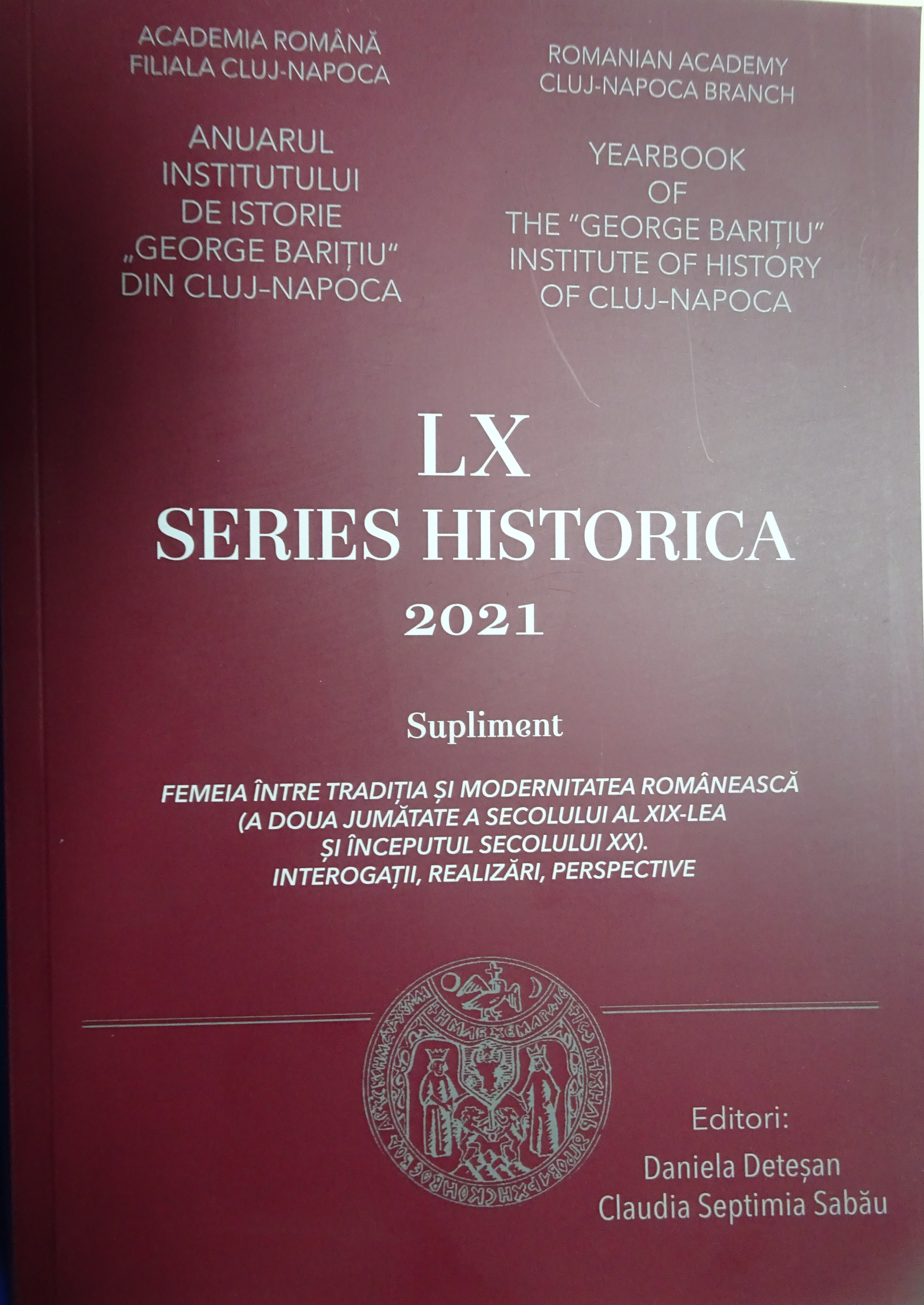Natalia Obrenović - Princess and Queen of Serbia. Between Politics and Family
Natalia Obrenović - Princess and Queen of Serbia. Between Politics and Family
Author(s): Lilia ZabolotnaiaSubject(s): Cultural history, Diplomatic history, Gender history, 19th Century, Pre-WW I & WW I (1900 -1919), Interwar Period (1920 - 1939)
Published by: Editura Academiei Române
Keywords: Natalia Keshko; Milan Obrenović; Serbia; Bessarabia; politics; divorce; family;
Summary/Abstract: Studies devoted to women in power are of particular interest, since regardless of the era, this issue is of particular relevance. Most often, any female personage, even if she is a representative of a ruling dynasty, is viewed from the perspective of a mother, wife or sister. In this article, we will try to consider some fragments from the life of Natalia Obrenović, nee Keshko, widely known in the history of Moldova, Serbia and Russia, and, in particular, her attitude to politics. In our opinion, it was her desire to delve into and interfere in the political activities of her husband Milan Obrenović that became the main reason for her tragic fate, in which there were divorce, separation from her son, and subsequently his death, change of religion and long years of renunciation and loneliness. Our research began with the search for her famous work „Mother”, which, undoubtedly, contains the most reliable information about her life and work firsthand. Attempts by my colleagues- historians in Serbia and France, as well as all our searches in the leading Russian archives (Moscow and St. Petersburg), have so far been unsuccessful. The main sources of this study were unique historical documents from Russian archival collections, especially of a private nature – letters from Natalia Obrenović, newspaper publications of the era and the memoirs of contemporaries about her. The author suggests that the marriage between a representative of the Bessarabian elite and a member of the Obrenović dynasty had far-reaching, far-sighted plans for dynastic merging and strengthening the positions of the Moldavian-Serbian aristocracy in the Balkans. However, the matrimonial union was not strong and durable. In the tragic breakup of the family, differences in political views between the spouses and Natalia's desire to dominate and rule the country played a role.
Journal: Anuarul Institutului de Istorie »George Bariţiu« - Series HISTORICA - Supliment
- Issue Year: LX/2021
- Issue No: 1
- Page Range: 333-339
- Page Count: 7
- Language: English

